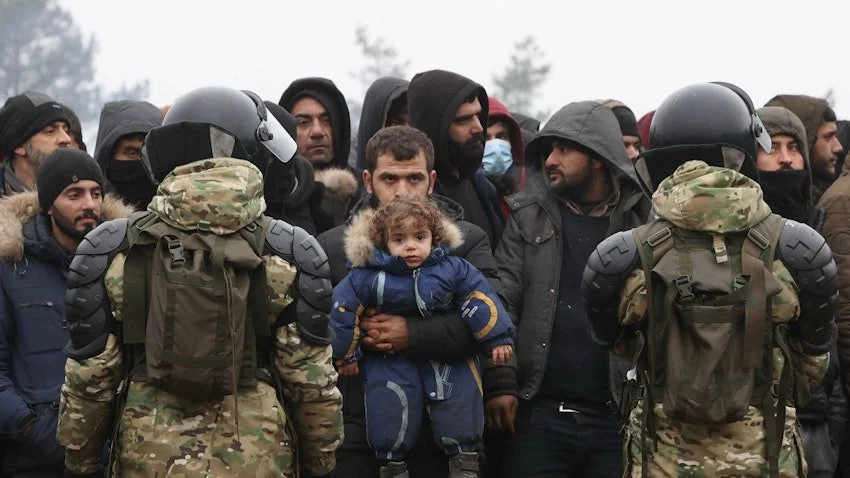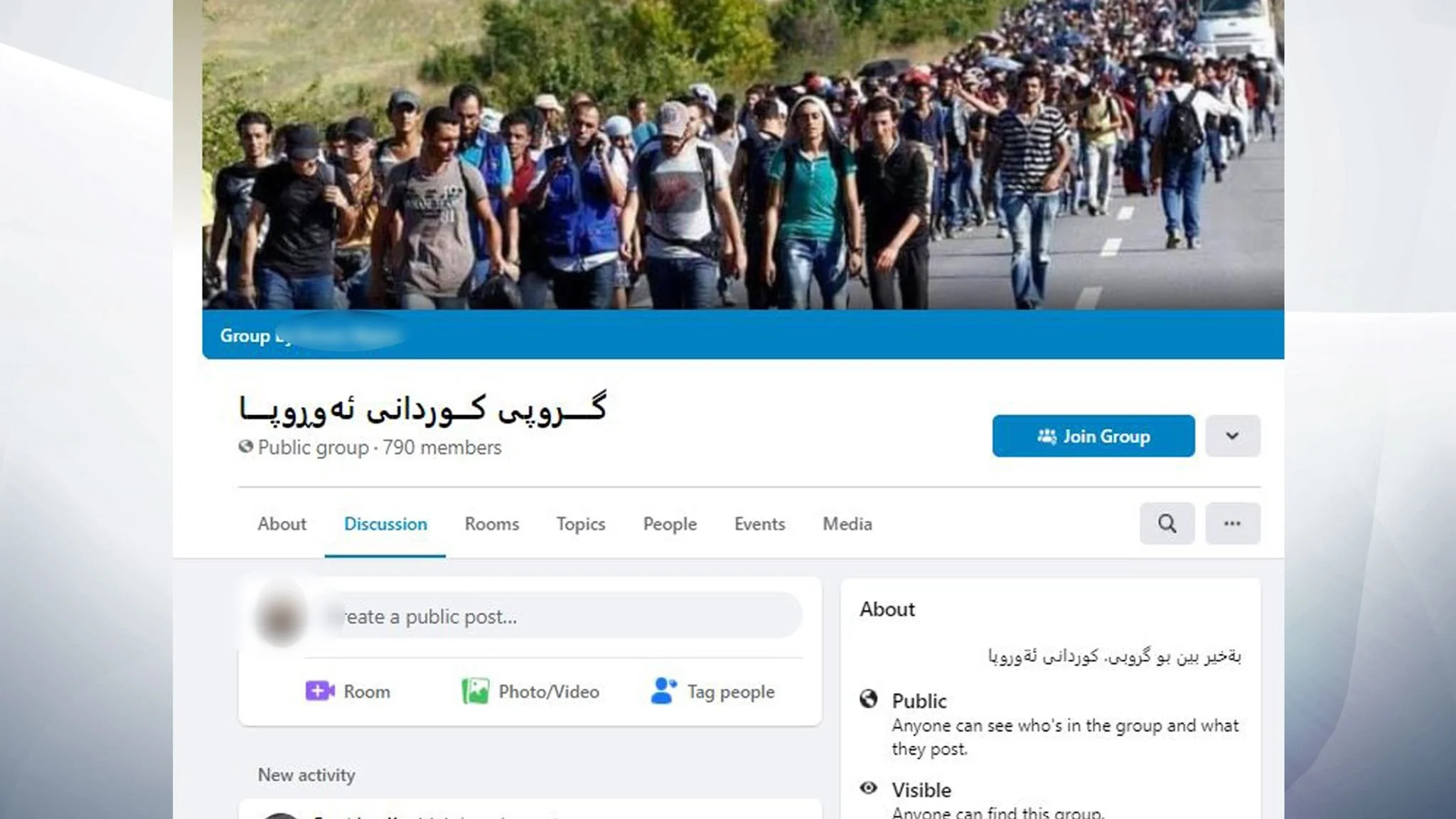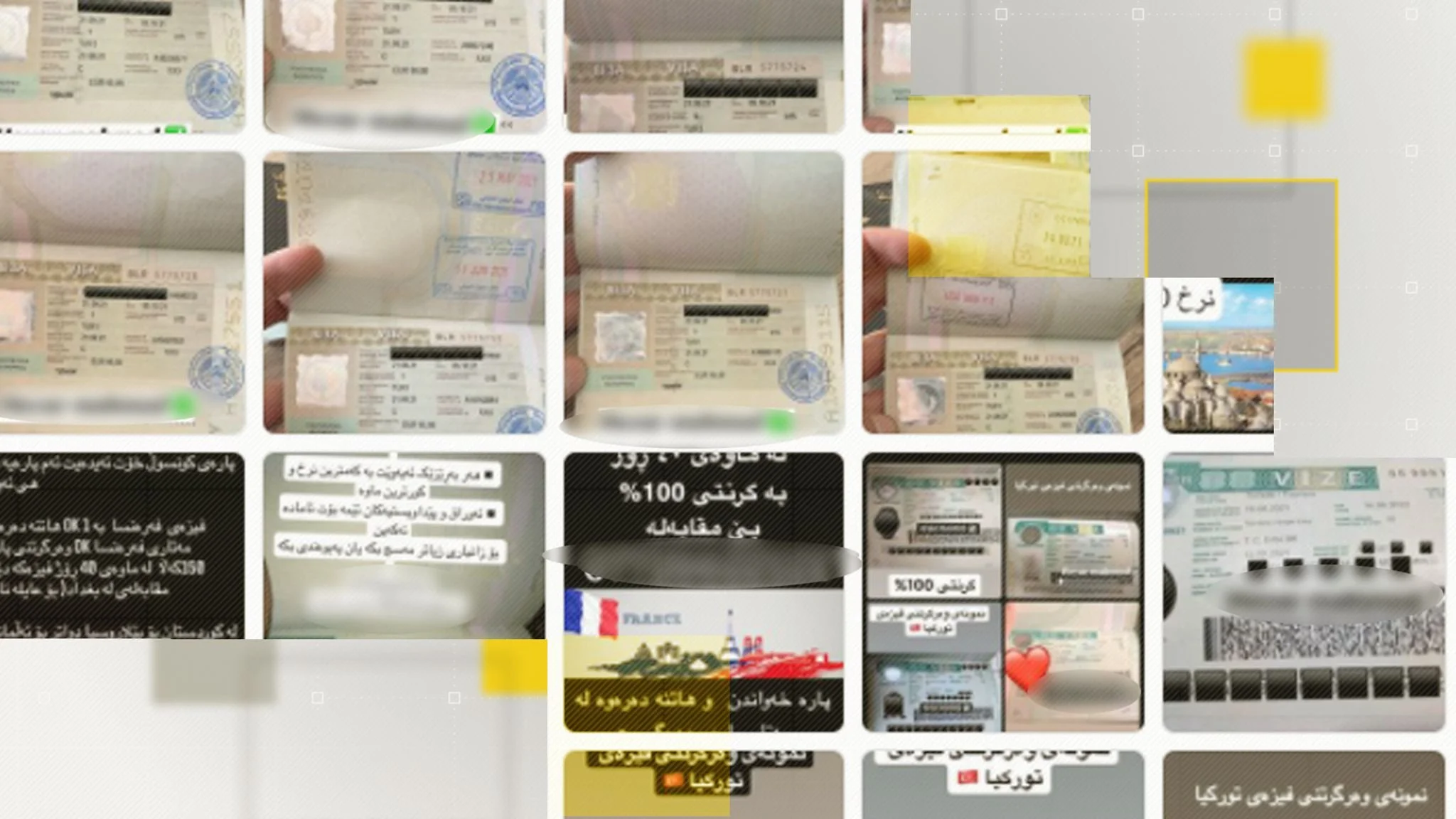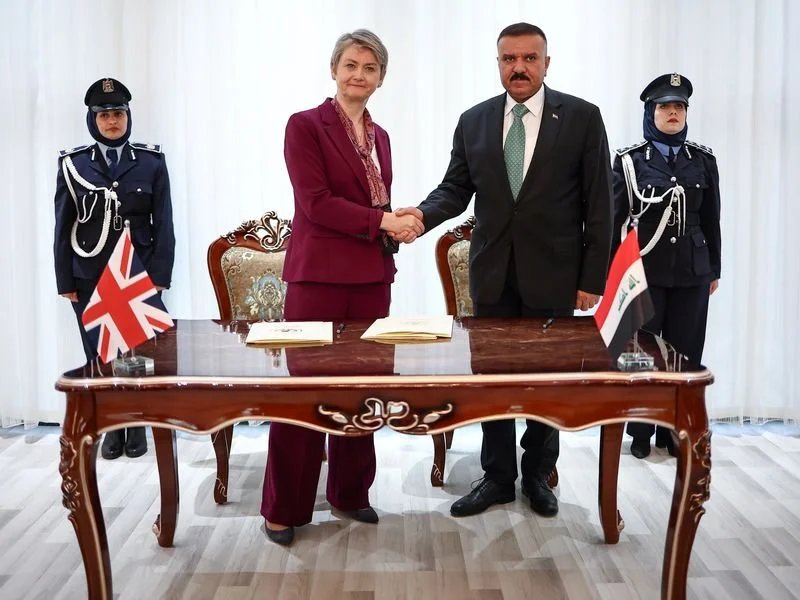The Cost of Collapse: Salary Crises and the Surge in Kurdish Irregular Migration
How did we get here?
Two months have passed, and public sector employees in the Kurdistan Region of Iraq (KRI) have yet to be paid for the month of May 2025. This latest delay is not an anomaly; it is part of a recurring crisis that is pushing thousands of ordinary citizens to the edge of survival. Over the past years, a series of critical issues including high unemployment, low pay and unpaid salaries, widespread corruption, and discriminatory systems of patronage forced many, especially among young people, to leave the country illegally.
Irregular migration from the KRI toward Europe and the United Kingdom has significantly increased since 2015, driven by economic hardship, unemployment, political disenchantment, and social pressures. The Lutka Foundation estimates that over 633,273 Kurds have left the KRI for Europe via irregular routes between 2015 and 2021. In 2023 alone, approximately 19,500 individuals departed, marking a significant outflow despite being the “lowest number” in recent years. Other estimates, such as those from the Centre for Middle Eastern Studies, suggest an average of 32,000 departures per year since 2020.
Given its illegality, this migratory flux has been systematically exploited by Kurdish organised criminal groups (OCGs) operating across borders. Underground smuggling networks connecting Erbil to the English Channel coordinate through a tangled web of actors both at home and in the Kurdish diaspora abroad. While international and national legal instruments exist to combat trafficking and smuggling, gaps in enforcement and legal definitions continue to hamper efforts, especially at home in Iraq and within Kurdistan.
The Salary Crisis and Its Ripple Effects
The Kurdistan Region of Iraq depends heavily on its public sector to provide employment, which currently sits at approximately 1.25 million people, including pensioners. In governorates such as Erbil, Sulaymaniyah, and Duhok, public salaries form the backbone of household income and economic activity.
The ongoing delay in May 2025 salaries is rooted in unresolved disputes between Erbil and Baghdad, especially around revenue sharing, incomplete budget transfers, and political disagreements over financial oversight. But the consequences reach far beyond civil servants. When salaries are delayed, the whole economy is impacted. Households across the region immediately reduce spending, limiting purchases to essential goods like food, medicine, and fuel.
This contraction in consumer spending sends shockwaves through the economy, hitting small businesses, shops, markets, and local service providers. Vendors report fewer customers, reduced turnover, and growing difficulty in covering operating costs or retaining staff.
In this context, the economic crisis in KRI does not just impact livelihoods, it reshapes decisions about the future. With limited job opportunities, unpredictable income, and rising living costs, many feel they have exhausted their options at home. For many, especially among young people, irregular migration can start to seem like the only viable path toward stability and opportunity. The lack of credible alternatives within the local economy is not just a background factor, it is one of the central forces pushing people to leave.
From Crisis to Crossing: The Journey to Europe
The route out is rarely legal. Instead, many Kurds are turning to smuggling networks that operate across Iran, Turkey, and the Balkans before reaching France and eventually the UK. These journeys are orchestrated by well-established criminal networks, sometimes operating as loosely connected cells and other times as family-run enterprises with decades of experience trafficking illicit goods including weapons, narcotics, and people.
Transnational Kurdish networks, often embedded within the diaspora, play a pivotal role in financing and facilitating these journeys. They help migrants navigate not only borders, but asylum systems, housing, and even employment once in Europe. The full journey can cost between $6,000 to $20,000, depending on the route and the level of “service.” Some cross mountains by foot, others hide in trucks, and many risk their lives in small boats across the English Channel.
The pro/con analysis is stark.
In 2024, at least 69 people, including men, women, and children, lost their lives while attempting to cross the English Channel, surpassing the combined total of 59 recorded deaths from 2019 to 2023. The actual number is likely higher, as many incidents go unreported or remain unconfirmed.
Despite the known dangers of the crossing, desperation continues to outweigh deterrence. Social media is only accelerating this trend. Smugglers advertise services their openly on Telegram, TikTok, and WhatsApp, offering "success stories" and even GPS footage of arrivals in the UK. These posts make the route appear dangerous - but ultimately doable. For desperate viewers, this is enough.
A Culture of Departure
Over the past decade, migration to Europe has become more than a response to hardship, it has become culturally embedded across many communities in the Kurdistan Region. For many families, especially in rural and economically marginalized areas, sending a son abroad is seen as both a rite of passage and a long-term investment. Young men commonly prepare for migration by acquiring practical skills, such as barbering, tailoring, or basic mechanics, not to build careers at home, but in anticipation of employment in European cities. Stories of successful journeys circulate widely through word of mouth, social media, and diaspora networks, reinforcing the belief that the path to a better life lies elsewhere.
A Legal and Policy Grey Zone
Although Iraq passed an Anti-Trafficking Law in 2012, later adopted by the Kurdistan Region in 201815, it primarily targets trafficking for purposes of exploitation, such as forced labour or sexual exploitation. It does not adequately cover cases of voluntary irregular migration, where individuals knowingly pay to be smuggled across borders. As a result, smugglers who facilitate these journeys without coercion are rarely prosecuted. High-profile arrests, such as that of Barzan “Scorpion” Majeed in 2024, remain isolated incidents.
In November 2024, the UK and Iraq signed a security pact aimed at dismantling transnational people-smuggling networks through law enforcement and training of security forces. “There are smuggler gangs profiting from dangerous small boat crossings whose operations stretch back through Northern France, Germany, across Europe, to the Kurdistan Region of Iraq and beyond,” said UK Home Secretary Yvette Cooper during a joint press event in Baghdad and Erbil. “Organised criminals operate across borders, so law enforcement needs to operate across borders too,” she added.
Conclusion: The Solution Starts at Home
The delay in May 2025 salaries is not an isolated event. It reflects broader and ongoing fiscal and governance challenges in the Kurdistan Region. While economic hardship is a central factor, the drivers of irregular migration are layered. For many, particularly young people, the region currently offers limited prospects: wages are inconsistent, job opportunities are scarce, and career growth feels out of reach. These conditions are compounded by a lack of political openness and the persistence of patronage-based systems that restrict access to opportunity.
In this context, migration increasingly becomes a considered choice, rather than a last resort. Many young Kurds aspire to a stable income, access to education, and the ability to build a life with dignity. Yet these goals are often seen as unattainable under the status quo. As long as structural barriers remain, and legal pathways abroad are limited, informal networks and smuggling routes continue to fill the gap.
The impact of these systemic weaknesses extends beyond individuals. A continued sense of exclusion risks weakening public trust in institutions and deepening the disconnect between citizens and their representatives. If meaningful reforms are not implemented, particularly around salary stability, economic diversification, and more transparent governance, many will continue to seek their future elsewhere. Legislation, though well-meaning, remains theoretical rather than practical, and it remains to be seen whether transnational crime organisations will be affected. Ultimately, encouraging Kurds to stay and build their future in the KRI remains a more viable permanent solution than policing those desperate enough to flee.
Creating the conditions for people to stay will require more than temporary fixes. It will depend on building a system that offers real opportunities, responsive leadership, and a shared sense of possibility for the future.




